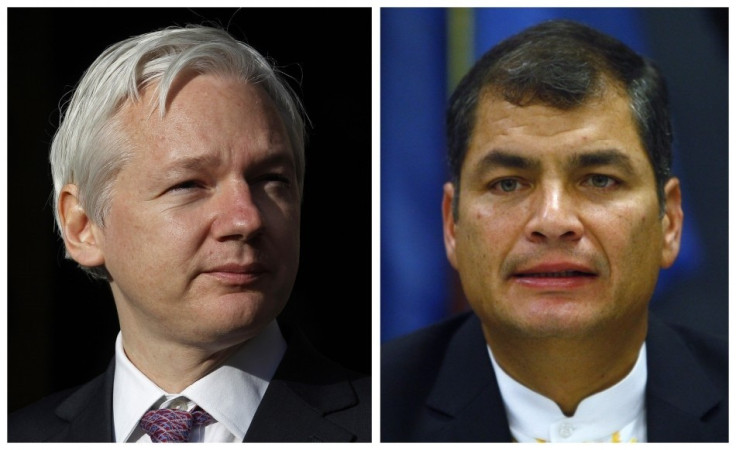NSA Snooping Scandal: Ecuador Revokes Edward Snowden's Travel Pass Because Assange is 'Running the Show'

Ecuador has cancelled whistleblower Edward Snowden's travel pass, apparently due to concerns about the influence of Julian Assange.
The pass, which would have allowed Snowden safe passage into Ecuador, was publicly revoked by the country's president Rafael Correa, who claimed any such document was invalid.
It is believed the pass was issued by Fidel Narvaez, a consul at Ecuador's London embassy, where Assange is currently taking refuge. Narvaez has previously said he is close with the Wikileaks founder.
Explaining his decision to revoke the document, Correa said he doubted it had even been issued. Even if it had, "the person who issued it will be totally without authority and [the document] would have no validity."
Correa also said that Snowden's situation is "complex", and insisted the NSA whistleblower would have to arrive on Ecuadorean soil before any request for asylum could be processed.
However, documents seen by the Wall Street Journal suggest the influence of Assange was, in fact, the key factor in Correa's decision.
One document suggested that Assange had offered the Ecuadorian government advice on how to handle the PR fall-out from Snowden. A subsequent note from Ecuador's ambassador to the US, Nathalie Cely, to presidential spokesman Fernando Alvarado indicated this advice was not well-received.
"I suggest talking to Assange to better control the communications," Cely wrote. "From outside...[Assange] appears to be running the show. "
According to one of Ecuador's senior foreign diplomats, interviewed by the Guardian earlier this week, Assange's behaviour has caused consternation among some members of the government, who believe he is using the Snowden affair to enhance his personal reputation.
Holed up in Moscow
It had been reported that Snowden would attempt to travel to Ecuador from Moscow's Sheremetyevo airport, where he is believed to be hiding from US law enforcement agencies.
The 30-year-old is charged with theft of US government property, unauthorised communication of national defence information and wilful communication of classified communications intelligence.
He revealed to the Guardian and the Washington Post details of a secret government surveillance programme called Prism which he obtained while working as a contractor for the National Security Agency (NSA).
Snowden's father, Lonnie, has said his son may be open to return to the US, albeit under certain conditions, including no detention before trial and no gag order.
"I love him. I would like to have the opportunity to communicate with him," Snowden Sr said.
"At this point I don't feel that he's committed treason. He has in fact broken US law, in a sense that he has released classified information.
"If folks want to classify him as a traitor, in fact he has betrayed his government. But I don't believe that he's betrayed the people of the United States."
© Copyright IBTimes 2025. All rights reserved.






















